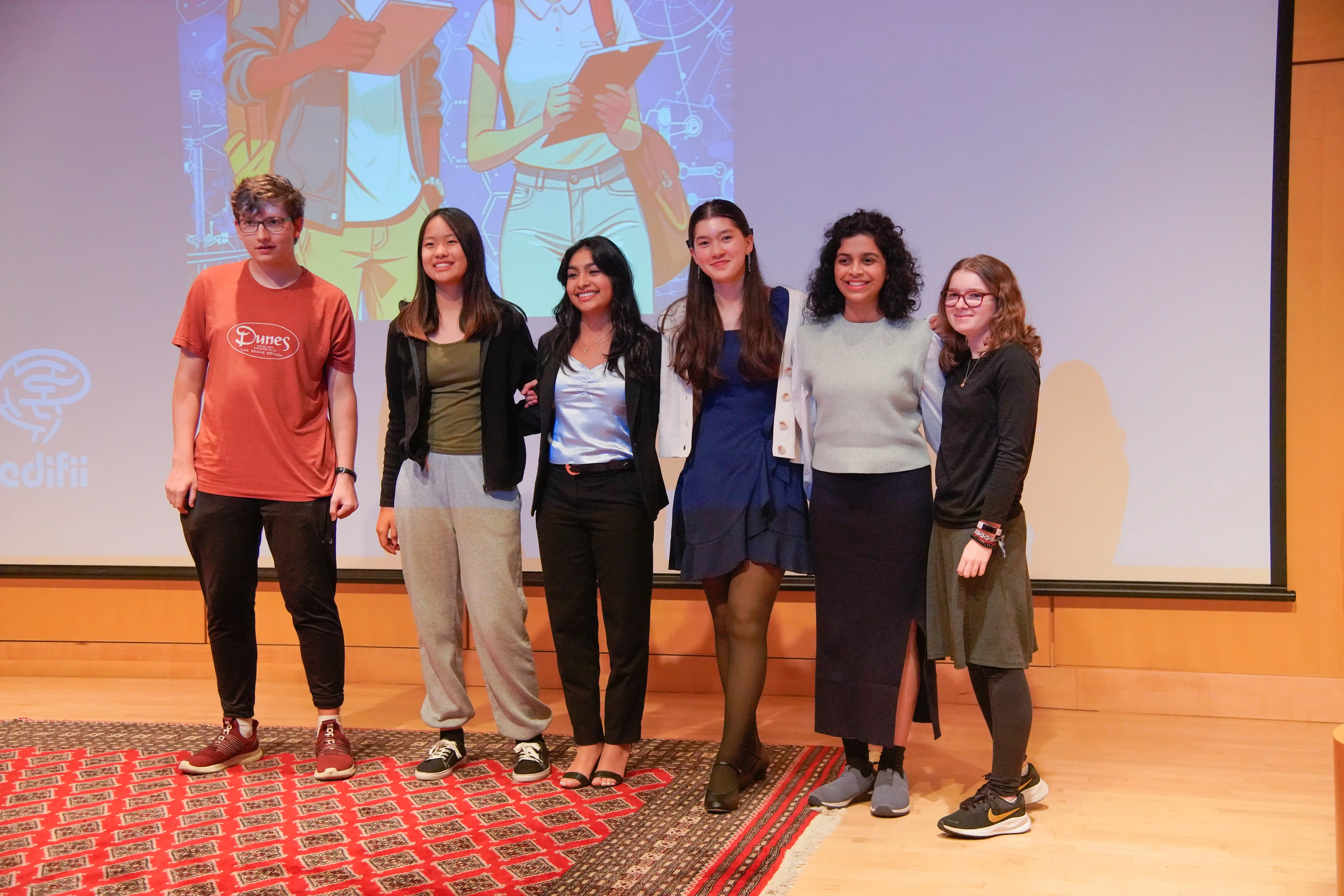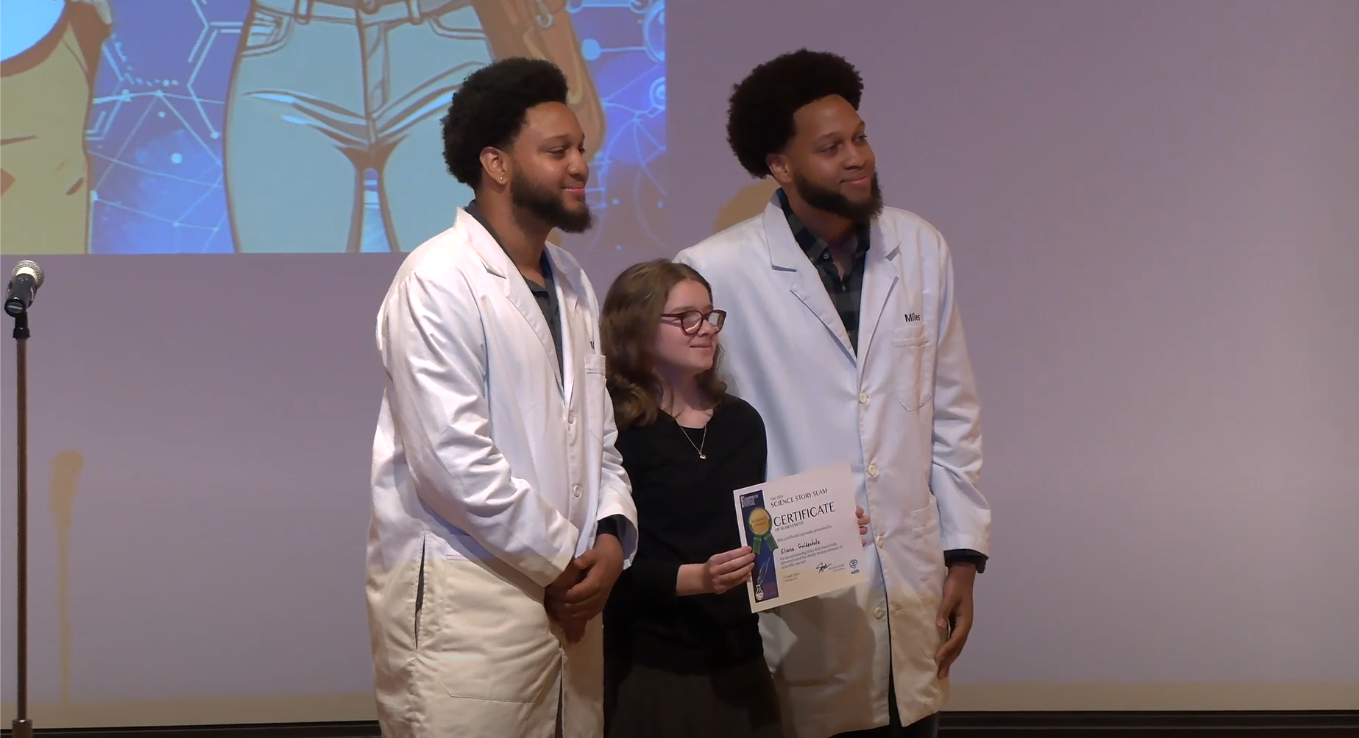Edifii's Science Story Slam
Our mission to ensure success for all learners led us to create a forum for high schoolers to express their creative talents.
What is it?
The Science Story Slam (3S) is an annual invitation to all U.S. high schoolers to share 5-minute stories about science, technology, engineering, or math (STEM) and compete for $5000 in total prizes at the Cambridge Science Festival!
Read about the 2024 installment in this Cambridge Day article written about the event.

"Science is not opposed to storytelling. Science is a genre of storytelling. Stories of the real world, inspired by observations thereof." - Sean Carroll, physicist
Science Story Slam
Science is a quest to find true stories about ourselves and the universe we inhabit. Far from the dry enterprise it is sometimes made out to be, science is brimming with fascinating tales of adventure, discovery, self-doubt, failure, and success. Some of them have been told; many are yet to be shared. The Science Story Slam (3S) is a step in that direction.
3S is an invitation to all U.S. high schoolers to share their stories about STEM with the community at large. These could be stories set in fictional scenarios that explain a scientific concept, or gripping accounts of how a scientific discovery came about, or more personal memoirs of how the pursuit of science has impacted the storyteller. The stories should be short but engaging for the broad audience that attends 3S.
We are planning future installments of the Science Story Slam. Stay tuned and sign up for our mailing list below to be notified of the next installment of the Science Story Slam!
In fall 2024, we had our second 3S in front of a crowd at the Cambridge Public Library. We received more than 50 entries from over 10 states, with performances from our 7 finalists.

In fall 2024, we had our second 3S in front of a crowd at the Cambridge Public Library. We received more than 50 entries from over 10 states, with performances from our 7 finalists.
How the Competition Works
'Beat AI' Track
In fall 2024, we introduced a special prize for high schoolers who submitted original written stories in response to a prompt, which was also provided to a generative AI system like ChatGPT. A first round of judges identified the top student entry for this category. The human entry then went head to head with an AI story, which were both performed by a voice actor on stage at the Finals. Our Finals judges then blindly evaluated the winner (not knowing which is AI or human-generated).
Prizes
Loading prizes...
Eligibility
All U.S. high school students are invited to participate, including rising 9th graders and graduating seniors.
Note that winners receive only one of the cash prizes (for example, the Audience Choice winner will receive a total of $500). Finalists that are outside of driving distance (2.5 hours) of Cambridge, MA, can apply for partial reimbursement of travel expenses.
Submissions
Stories should be original (even when describing other scientists' work, the account should reflect the student's voice). Entries prepared with the help of generative AI systems or adapting other sources are not disallowed but need to be marked as such.
Each entry should be roughly 500 words, either prose or poetry (including a song or rap) and capable of being narrated in about 5 minutes. Alternatively, you can share your story via a 5-minute video (excluding "Beat AI" category entries, which must be written).
Students can submit multiple entries, including for both the regular and AI tracks. Joint entries with other students are welcome, but they must list all contributors in the submission and will split any cash prize. Video submissions will require a public or unlisted YouTube link so judges can easily access it.
All students under 18 years of age must have parent or guardian permission to enter and will receive a consent form to complete if selected as a finalist.
Questions?
Contact us at edifii@edifii.me.
Sign up for email updates below.